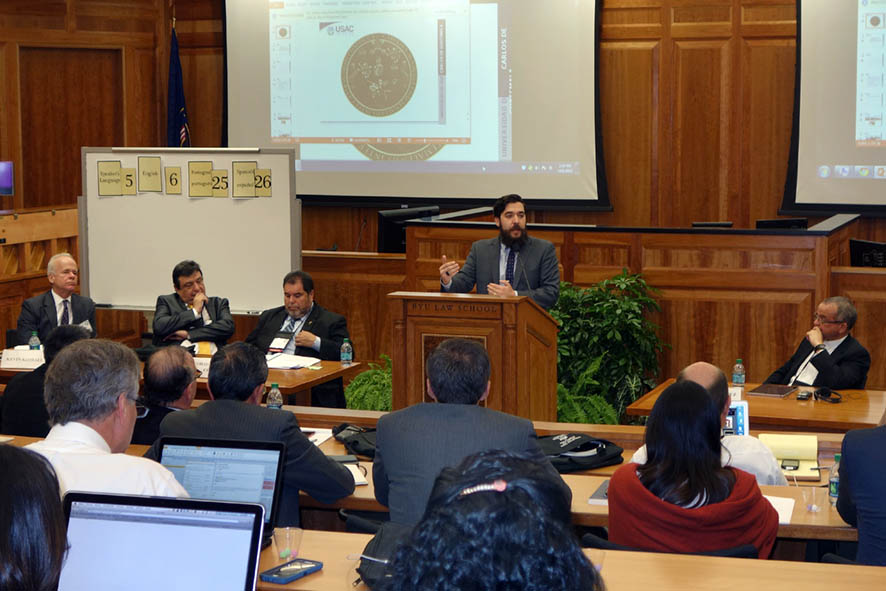Symposium 2015: Latin America – Universities and NGOs

Reported by Raquel Flores
The Latin American Universities and NGOs Breakout Session held on Tuesday, October 6, 2015 was moderated by Kevin Kimball, International Fellow of the International Center for Law and Religion Studies, and included Carlos Alvarado Cerezo, Ramón de la Cruz Baldera, and Tomás Henriquez Carrera as speakers.
Carlos Alvarado Cerezo, Rector of the University of San Carlos of Guatemala, discussed what his University has done to promote religious liberty in Guatemala. Because the University can present legal initiatives to the Legislature, it has been directly involved in the legislative process. In addition, the University has helped create, and now participates in, two important civic groups: The Group of Four–which is comprised of Catholic and Evangelical Churches, the Office of Human Rights, and the University of San Carlos—and the National Platform for State Reform. Through these groups, the University can discuss serious societal problems and potential solutions with organizations that share their concerns, and share their conclusions with the government. Mr. Alvarado Cerezo finished his remarks by saying that the University would continue to work with other groups in order to create more justice in Guatemala.
Ramón De La Cruz Baldera, Rector of the Pontificia Universidad Católica Madre y Maestra of the Dominican Republic, began by discussing the relationship between the Catholic Church and the government of the Dominican Republic throughout history. He also spoke of the role of The Pontifica Universidad Católica Madre in resolving political conflicts through the Center for Resolution of Conflicts and the Economic and Social Council of the Dominican Republic, which are housed on its campus.
The rector finished by highlighting what he believed to be two of the biggest threats to religious liberty in the Dominican Republic: the growing secularism in the country, and the tendency to remove any religious thing from the public square. He also pointed to some improvements. There is now a growing number of non-Catholic, Christian church organizations; more youth becoming involved in new religious organizations; and greater participation of Christians in the media.
Tomás Henriquez Carrera, Founder and Former CEO of Communidad y Justicia in Santiago, Chile, was the concluding speaker. He began by expressing his belief that the greatest threats to religious liberty in Latin America are state governments trying to limit the actions of religious people. Many of these initiatives come from local legislatures. Some, however, come from the Inter-American Court of Human Rights and the American Convention on Human Rights, which are setting precedents that encroach on the religious liberty in favor of policies favoring abortion rights, tolerance, and non-discrimination.
In closing, Mr. Henriquez Carrera argued that instead of letting others define religious liberty, concerned citizens should strive to create a robust view of religious liberty. To create that view, they will need to become more aware and involved in the legislative process of their countries. NGOs and universities should create legal clinics that will fight for religious liberties and participate actively in the legislative process. He finished with a call to action, saying that, if the people will not fight for their rights, no one else would act on their behalf.